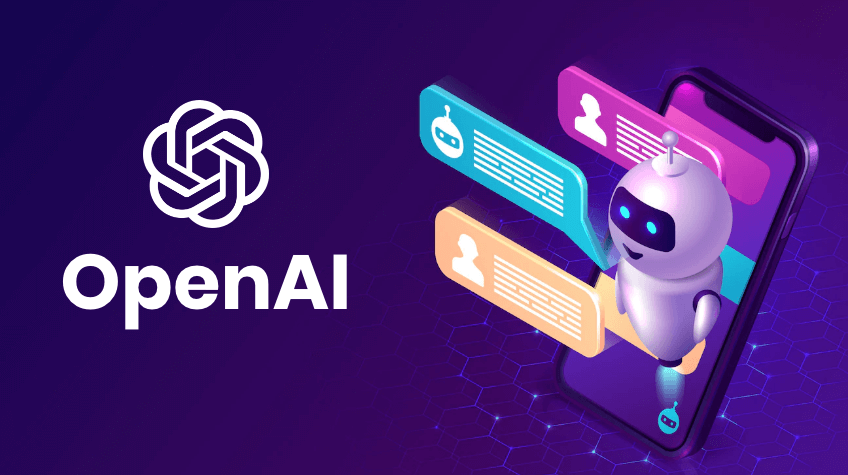


OpenAI's ChatGPT has introduced a new search feature powered by the GPT-4o model, allowing users to get real-time information from the web without leaving the chatbot platform. This feature aims to eliminate the need for multiple searches and digging through links to find quality sources and the right information. OpenAI has partnered with news and data providers to ensure up-to-date information and improved visual designs. The feature is currently available to ChatGPT Plus and Team users and will be rolled out to other users in the coming weeks and months.
OpenAI's AI-Powered Search Revolutionizes Information Retrieval
Background and Innovation
OpenAI, renowned for its groundbreaking advancements in artificial intelligence (AI), has unveiled a transformative new search feature integrated within its ChatGPT platform. This feature, powered by the GPT-4 language model, enables users to seamlessly access real-time information from the web without exiting the chatbot environment.
By leveraging advanced natural language processing and vast language databases, ChatGPT's search capability empowers users to engage in natural language queries and receive comprehensive responses that synthesize information from a multitude of credible sources. This feature eliminates the need for multiple searches and tedious link navigation, streamlining the process of finding accurate and relevant information.
To ensure the reliability and accuracy of the information presented, OpenAI has forged strategic partnerships with reputable news and data providers. These partnerships guarantee access to up-to-date content and enhanced visual elements that complement the textual search results.
Top 5 FAQs
1. Can I use the new search feature on any ChatGPT account?
Currently, the AI-powered search feature is only available to ChatGPT Plus and Team subscribers. It will be gradually rolled out to all users in the near future.
2. How does the feature integrate with the chatbot platform?
The search functionality is seamlessly integrated into the ChatGPT user interface. After posing a query, users can select the "Search the web" option to initiate the search process.
3. What types of information can I search for?
The search feature enables users to retrieve a wide range of information, including current events, historical facts, scientific concepts, entertainment news, and much more.
4. How does the AI-powered search differ from traditional search engines?
Unlike traditional search engines that display a list of links, ChatGPT synthesizes information from several credible sources and presents a comprehensive and concise response tailored to the user's query.
5. Is the search feature free to use?
For the time being, the AI-powered search feature is accessible only to ChatGPT Plus and Team users, who pay a monthly subscription fee. It is expected that the feature will be available at no additional cost to all users once it is fully rolled out.

After previous failed attempts, SpaceX, led by CEO Elon Musk, launched its mega rocket Starship for the ninth time from its Starbase launch site in Texas. The spacecraft experienced a series of malfunctions, ultimately breaking apart and tumbling out of control, falling short of its main objectives. Despite this setback, Musk remains optimistic about the future launch schedule and plans for a faster pace with a Starship soaring every three to four weeks. NASA is relying on SpaceX to successfully develop the massive and powerful Starship in order to land astronauts back on the moon in the future.

At CES 2025, Dolby unveiled its latest developments in in-car entertainment with an expanded range of vehicles now offering Dolby Atmos support. Leading car manufacturers such as Cadillac, Mercedes-Benz, Rivian, and Volvo have incorporated Dolby's audio technology, with new announcements at CES, including a partnership with Sony Honda Mobility for its upcoming EV, Afeela 1. Dolby also showcased its collaboration with Analog Devices, MediaTek, NXP Semiconductors, and Texas Instruments, and Pioneer's demonstration of how Dolby Atmos can be delivered through aftermarket car audio products, providing consumers with new options to elevate their in-car entertainment experience.

Vivo has announced a partnership with National Geographic Creative Works under the slogan "Go Into the Wild" to document untouched landscapes and wildlife encounters in India's wild terrains. The project will showcase how vivo's X300 series, with its ultra-high-resolution imaging and pro-level stabilization, enables creators to capture nature with unprecedented depth and detail using a smartphone. Both parties are excited to showcase the capabilities of the X300 series through this collaboration.

In response to the risks associated with traditional ATM transactions in the ongoing pandemic, AGS Transact Technologies Limited has developed a contact-less solution for ATMs. This solution, which utilizes a QR code and a bank's mobile app, allows for cash withdrawals without the need for physical contact with the ATM machine. This innovative approach is just one example of the many contact-less solutions being adopted in India to prevent the further spread of the virus. With this new technology, customers can safely and easily withdraw cash while maintaining social distancing measures.

Now is the best time to buy a portable power station, and the deals on popular Jackery Models on Amazon's Black Friday Sale are unbeatable. Don't wait until an emergency strikes to invest in a reliable backup power source. The Jackery Explorer 2000 v2 offers a heavy-duty 2042Wh LiFePO4 battery and up to 2200W of AC output, making it perfect for off-grid use and handling essentials for camping or home power outages. With modern features like 100W USB-C PD fast charging, don't miss out on this must-have deal before winter sets in.

Get ready for the ultimate convenience as Apple's upcoming iPhone 17 series is rumored to feature reverse wireless charging, allowing users to charge smaller accessories like AirPods and the Apple Watch directly from their phone. Although other Android devices have been offering this feature for years, Apple is finally catching up with its own version. With 7.5W charging support, the new iPhone 17 Pro models are expected to be a game changer in the tech world. Don't miss out on this highly anticipated release in September 2025.

WhatsApp is rolling out a new feature for iOS users that allows them to post short-term status messages, similar to WhatsApp Status. These updates can be used for quick, contextual updates within chats and can be set to automatically disappear after a chosen duration. The feature aims to keep profiles timely without requiring manual clean ups, providing real-time context for availability or activities. The redesigned About page also includes emoji support, making updates more expressive and easier to understand at a glance. While the feature is currently only available to some iOS users, it is expected to roll out to more devices in the coming weeks.

A technical glitch in a third-party system disrupted check-ins at several airports, causing delays for multiple airlines. Air India later announced that the issue had been fully resolved and operations had returned to normal. The airline advised passengers to check their flight status before traveling to the airport and to arrive earlier than usual. This is not the first time such an incident has occurred, as last month more than 400 flights were delayed due to a technical issue at a major airport in Delhi.

In a significant move, Apple has announced the appointment of Amar Subramanya as the new Vice President of Artificial Intelligence. With his distinguished background in both academia and industry, Subramanya is expected to lead key areas including ML research and AI safety and evaluation. This development comes at a crucial time for Apple as it seeks to improve its AI offerings, amidst reports of difficulties with its AI projects.

The Indian government's mandate for all new smartphones to come pre-installed with the Sanchar Saathi app has sparked debates about privacy and government surveillance. This move may lead to a potential conflict between Apple and the Indian government, as the company has strict policies against pre-installing government or third-party apps on its devices. Similar apps, like the Russian government-backed MAX and Pegasus, have been criticized for their potential to be used for surveillance purposes.